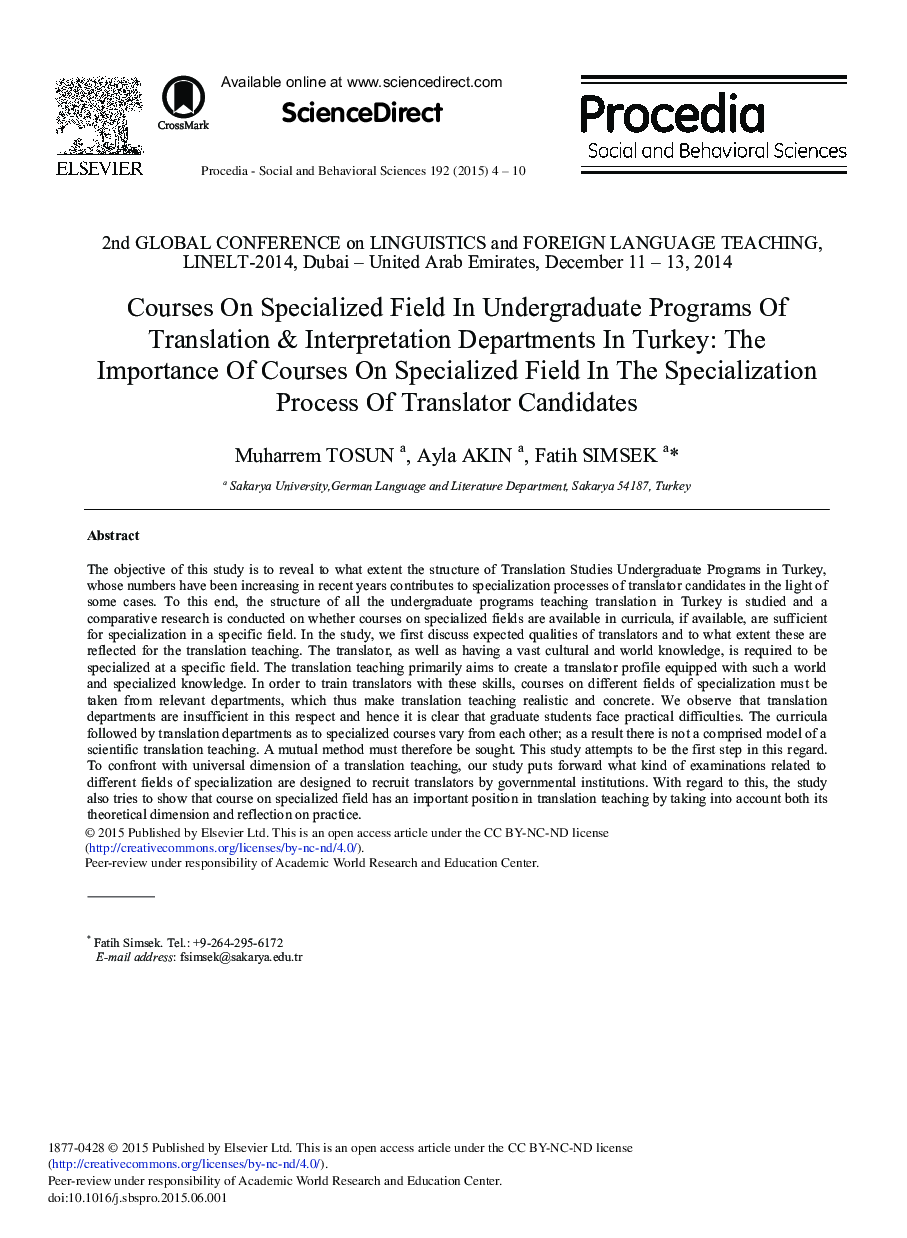| Article ID | Journal | Published Year | Pages | File Type |
|---|---|---|---|---|
| 1109222 | Procedia - Social and Behavioral Sciences | 2015 | 7 Pages |
The objective of this study is to reveal to what extent the structure of Translation Studies Undergraduate Programs in Turkey, whose numbers have been increasing in recent years contributes to specialization processes of translator candidates in the light of some cases. To this end, the structure of all the undergraduate programs teaching translation in Turkey is studied and a comparative research is conducted on whether courses on specialized fields are available in curricula, if available, are sufficient for specialization in a specific field. In the study, we first discuss expected qualities of translators and to what extent these are reflected for the translation teaching. The translator, as well as having a vast cultural and world knowledge, is required to be specialized at a specific field. The translation teaching primarily aims to create a translator profile equipped with such a world and specialized knowledge. In order to train translators with these skills, courses on different fields of specialization must be taken from relevant departments, which thus make translation teaching realistic and concrete. We observe that translation departments are insufficient in this respect and hence it is clear that graduate students face practical difficulties. The curricula followed by translation departments as to specialized courses vary from each other; as a result there is not a comprised model of a scientific translation teaching. A mutual method must therefore be sought. This study attempts to be the first step in this regard. To confront with universal dimension of a translation teaching, our study puts forward what kind of examinations related to different fields of specialization are designed to recruit translators by governmental institutions. With regard to this, the study also tries to show that course on specialized field has an important position in translation teaching by taking into account both its theoretical dimension and reflection on practice.
